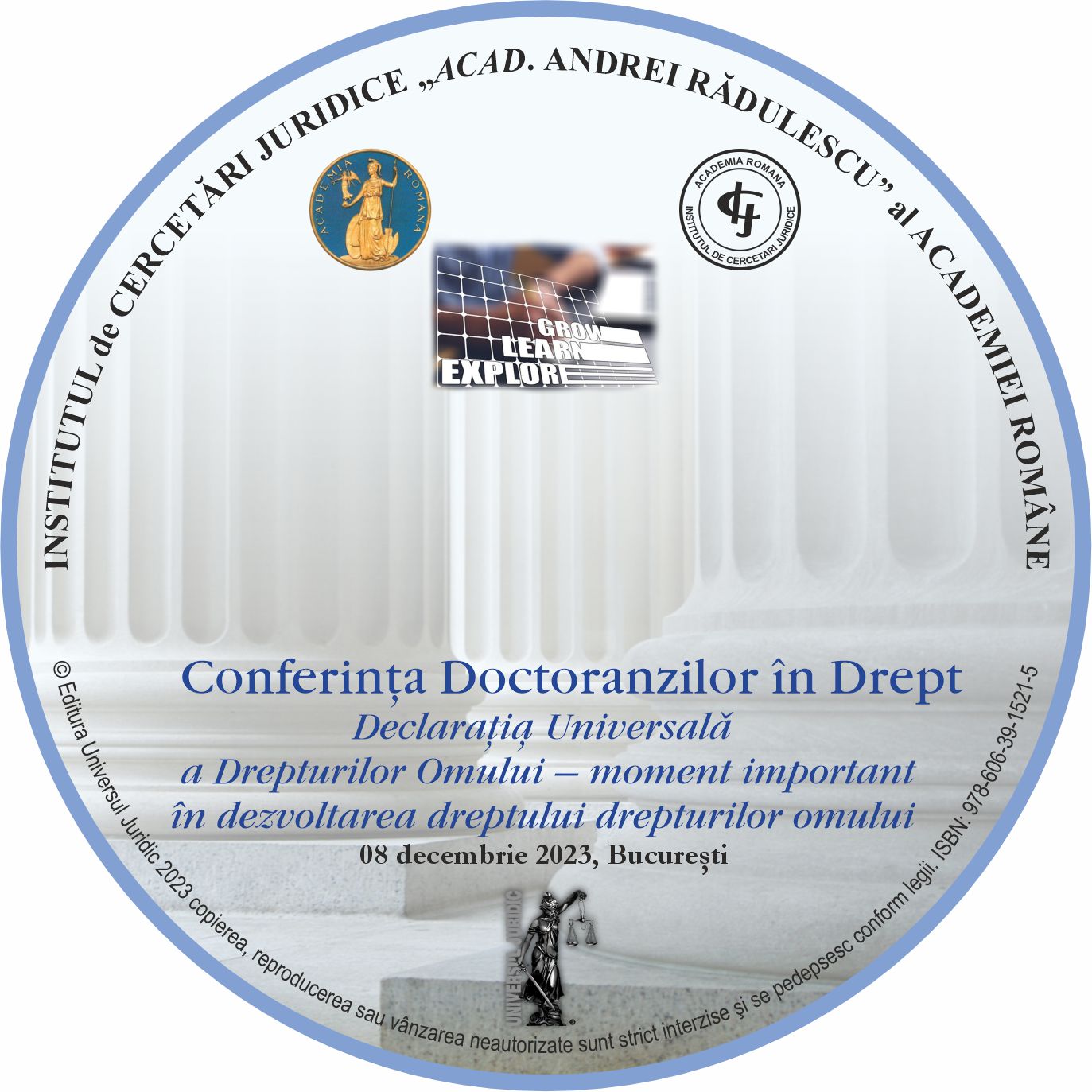Dreptul internațional umanitar și „noua eră” a conflictelor neconvenționale - paradigmă și provocare a dimensiunii juridice a securității internaționale
International Humanitarian Law and the "New Era" of unconventional Conflicts - Paradigm and Challenge of the Legal Dimension of International Security
Author(s): Viorel Gheorghe
Subject(s): Human Rights and Humanitarian Law
Published by: Universul Juridic
Keywords: International Humanitarian Law; Proportionality; Supremacy; Rule of International Law; Humanitarian Exception; Armed Conflict;
Summary/Abstract: Against the background of the resurrection of phenomena with a winding path such as terrorism, extremism and radicalization (especially, for terrorist purposes), concerns aimed at the ways of legally countering hybrid threats as well asymmetric as ones, with efficiency in terms of ensuring international security, are becoming more and more present on the agendas of states and international bodies, in the subsidiary, of some, political-military (NATO), even more so in the international context revealed in the proximity of Romania's borders. Although important progress has been and is being made in the research plan of the two ways of defining risks and threats specific to international security, international humanitarian law is and must be seen as a „normative arbiter”, with the sole purpose of coercing, limiting or eliminating any aggressive action against the national security or state defence, normative limits, agreed at the international level, necessary to impose the superior character of maintaining the supreme legal value of life, likewise, of carrying out armed actions strictly within the limits of international law. The reality, as can be seen in the context of the most recent major international and national security events, generates fundamental, complex debates, with multi-sector normative amplitude, which necessarily requires the involvement and application of the principles of legality, necessity and proportionality. Such asymmetric phenomena, as well as certain manifestations of hybrid threats (the conflict in Ukraine), have dramatically shaped the international scene, since the beginning of this century, generating the involvement and reaction of states and international organizations in the spirit and in accordance with international law, both taking into account the specific normative set, applicable to the anti- or counter-terrorist field. While preventing and combating terrorism are legitimate and necessary efforts for states, in ensuring national, regional and international security, they must respect the existing international legal frameworks, among which the norms of international humanitarian law are distinguished. As it is well known, the terminology - apparently close - remains essentially different. Not infrequently, even on the territory or proximity of Romania, military actions or actions with a military element are identified, manifested in an evolutionary historical and geostrategic context, which incur terminologies such as „asymmetric”, „hybrid”, „unconventional”, in a personal opinion, indicating, in addition to the state of increased danger, a certain lack of adaptation of the strategic and normative framework. The statements are not utopian, proven by the very instability of the debated field, given that the current international environment is becoming complex and unpredictable, with developments that require responses in the sense of avoiding the "surprise" factor, to realities of an undecided nature, from the perspective of identifying the origin and/or of the motivation of the aggression, thus generating the concern of the entire nation. The text is a pleading for the relevance and importance of respecting international humanitarian law, both in international forums (such as the United Nations Security Council), but also for its implications for human rights, and for the need to ensure the integrity and supremacy of these norms in view of any needs of military or counter-terrorist origin, with the integrity of the "humanitarian space", thus creating the prerequisites for a necessary and impartial humanitarian assistance to the population affected by an armed conflict.
- Page Range: 83-104
- Page Count: 22
- Publication Year: 2024
- Language: Romanian
- Content File-PDF

